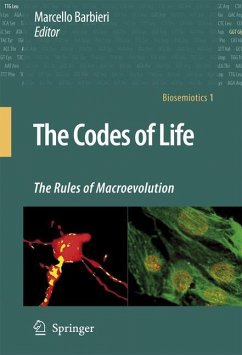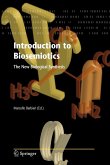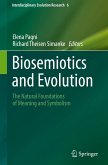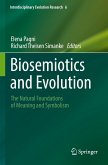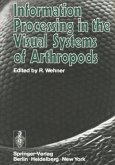Building on a range of disciplines - from biology and anthropology to philosophy and linguistics - this book draws on the expertise of leading names in the study of organic, mental and cultural codes brought together by the emerging discipline of biosemiotics.
The book's 18 chapters present a range of experimental evidence which suggests that the genetic code was only the first in a long series of organic codes, and that it has been the appearance of new codes - organic, mental and cultural - that paved the way for the major transitions in the history of life.
While the existence of many organic codes has been proposed since the 1980s, this volume represents the first multi-authored attempt to deal with the range of codes relevant to life, and to reveal the ubiquitous role of coding mechanisms in both organic and mental evolution. This creates the conditions for a synthesis of biology and linguistics that finally overcomes the old divide between nature and culture.
The book will appeal to all those interested in the origins and evolution of life, including biologists (from molecular and cellular biologists to evolutionary and developmental biologists), ecologists, anthropologists, psychologists, philosophers of science, linguists, and researchers interested in the history of science, the origins of life, artificial life and intelligence, and information theory and communication technology.
The book's 18 chapters present a range of experimental evidence which suggests that the genetic code was only the first in a long series of organic codes, and that it has been the appearance of new codes - organic, mental and cultural - that paved the way for the major transitions in the history of life.
While the existence of many organic codes has been proposed since the 1980s, this volume represents the first multi-authored attempt to deal with the range of codes relevant to life, and to reveal the ubiquitous role of coding mechanisms in both organic and mental evolution. This creates the conditions for a synthesis of biology and linguistics that finally overcomes the old divide between nature and culture.
The book will appeal to all those interested in the origins and evolution of life, including biologists (from molecular and cellular biologists to evolutionary and developmental biologists), ecologists, anthropologists, psychologists, philosophers of science, linguists, and researchers interested in the history of science, the origins of life, artificial life and intelligence, and information theory and communication technology.
From the reviews: "Biosemiotics purports to be a new synthesis of existing theories and compilations of theories addressing evolutionary bases. Barbieri ... has asked a group of researchers to present their ideas on a wide-ranging set of notions about change and stability. ... This work offers an impressive array of facts and speculations, extremely stimulating in origin and execution. ... the articles are generally well done with good bibliographies, and they will be useful to many researchers. ... Summing Up: Recommended. Graduate students and researchers/faculty." (F. W. Yow, CHOICE, Vol. 45 (10), June, 2008)

